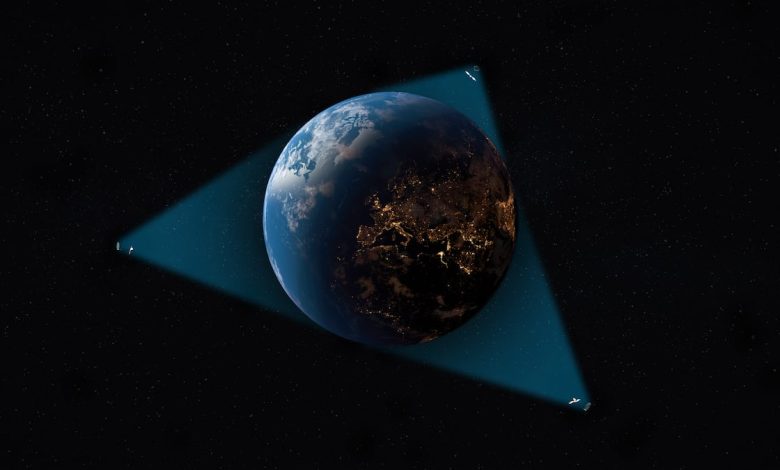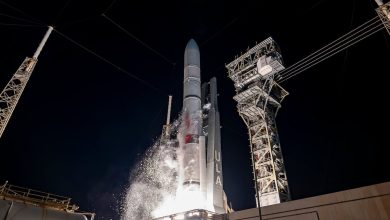Space Force developing plan for maneuverable GEO satellite services

The Space Force is planning to partner with commercial companies operating in geostationary orbit for a variety of satellite services, including communications and positioning, navigation and timing.
Col. Richard Kniseley, senior materiel leader in Space Systems Command’s Commercial Space Office, said he hopes to establish a pool of vendors for the effort, dubbed Maneuverable GEO, as soon as next year.
“This is going to allow us to onboard innovation, but also, even from a dual-use aspect, exploit capabilities that are already out there,” he told reporters at the Air Force Association’s Air, Space and Cyber conference.
While the buys won’t be limited to satellite communications, the Commercial SATCOM Office will manage the indefinite-delivery, indefinite-quantity contract — which allows the service to establish a group of eligible vendors to compete for various task orders. Any Defense Department agency will be able to use the procurement mechanism to buy satellite services, Kniseley added.
“As people come in with their requirements, we’re able to formulate the best path forward,” he said.
The effort is modeled off a similar program the Space Force started last year called Proliferated Low Earth Orbit Satellite-Based Services. The service initially selected around 15 providers to compete for the contract — worth up to $900 million over a five-year period. The pool has since grown, Kniseley said.
Demand for satellite services from low Earth orbit, which reside about 1,200 miles above Earth, has grown in recent years from both the defense and commercial sectors, but the need for such capabilities from higher altitudes like geostationary orbit is on the rise.
While many commercial companies have focused development efforts on satellites in low Earth orbit, Kniseley said he’s met with several firms who are building solutions for GEO.
The Space Force in particular is interested in satellites that can move in geostationary orbit, providing services from different positions or observing activities in orbit. The service in May awarded Starfish Space a $37.5 million contract to demonstrate the ability to maneuver and service spacecraft in orbit.
Kniseley said this week that the ability to maneuver satellites in space could give the U.S. a significant tactical advantage.
“That’s going to be a game changer for us in the military — where you’re not at a stagnant orbit and you’re able to drift from point to point,” he said, “especially supporting the U.S. in the event of a regional or national war so that we can maneuver more of our capabilities and be more agile to the warfighter.”
Courtney Albon is C4ISRNET’s space and emerging technology reporter. She has covered the U.S. military since 2012, with a focus on the Air Force and Space Force. She has reported on some of the Defense Department’s most significant acquisition, budget and policy challenges.
Read the full article here






